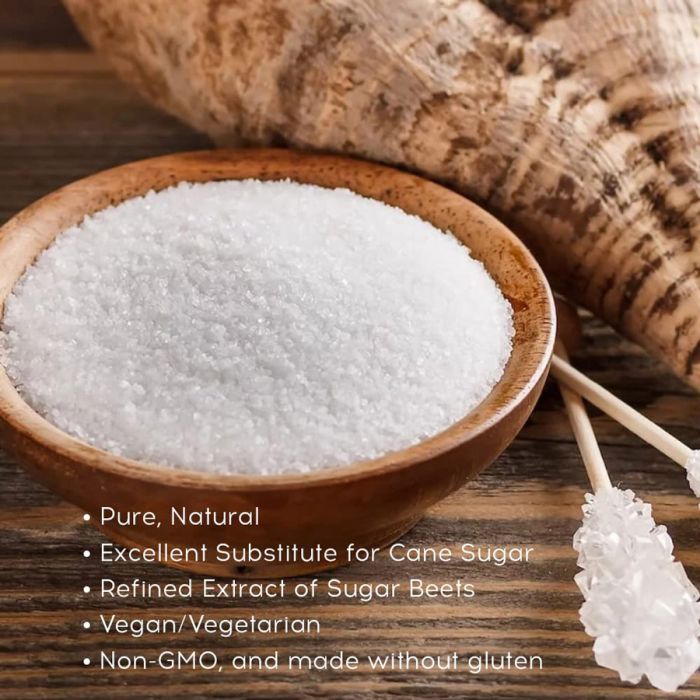Many people compare beet sugar vs cane sugar to understand their variations in sweetness and granulation.
Many people compare beet sugar vs cane sugar to understand their variations in sweetness and granulation.
Blog Article
Discovering the Distinctions in Usages and Advantages Between Beet Sugar Vs Cane Sugar
In the culinary globe, the choice between beet sugar and cane sugar is not merely concerning sweet taste but involves a nuanced factor to consider of flavor, application, and influence. While both sugars stem from different plants, each undergoes one-of-a-kind production procedures that discreetly influence their features and suitability for numerous dishes.
Beginnings and Manufacturing Procedures of Beet and Cane Sugar

Walking stick sugar, on the other hand, comes from the sugarcane plant, an exotic grass belonging to Southeast Asia now cultivated in tropical areas worldwide. The manufacturing of cane sugar starts with the harvesting of cane stalks, which are squashed to release the juice. This juice is then steamed to focus it, after which it is rotated in centrifuges to produce raw sugar crystals. These crystals are additional improved to create the white sugar typically offered in shops.

Nutritional Material and Wellness Considerations

When comparing the dietary content of beet sugar and cane sugar, it comes to be obvious that both types basically offer the same caloric worths, with about 16 calories per tsp and no considerable nutrient diversity. Both sugars, when eaten in excess, can contribute to elevated blood sugar levels, a danger factor for diabetic issues and other metabolic disorders. From a wellness point of view, regulating intake of any kind of type of sugar, whether from beet or cane, is advisable to avoid these possible negative results on health.
Flavor Profiles and Culinary Applications
Regardless of their similar chemical frameworks, beet sugar and cane sugar vary subtly in taste, which can influence their usage in numerous culinary contexts. Walking cane sugar usually brings a hint of molasses, also in its refined kind, providing a cozy, caramel-like touch that enhances baked items, coffee, and chocolate-based recipes. On the other hand, beet sugar is identified by its extremely refined, neutral preference, making it a versatile sweetener that does not modify the flavor accounts of meals.
Ecological Effect and Sustainability
While both beet and cane sugars are obtained from plants, their environmental influences differ dramatically due to the unique methods of growing and processing needed for each. Sugar beet farming usually involves substantial mechanization, which can increase fossil fuel consumption and carbon emissions.
Furthermore, the processing of sugarcane typically creates a weblink significant quantity of waste, including bagasse, which, although useful as biofuel, regularly adds to air contamination if shed inefficiently. Sugar beet processing uses more of the raw materials, leading to less waste. Both markets face challenges in minimizing their ecological impacts, yet ongoing advancements in agricultural practices and waste monitoring are intending to improve sustainability.
Economic Elements Influencing the Sugar Market
The economic dynamics of the sugar market are significantly influenced by global market demands and trade plans. In regions where sugarcane or sugar beet production is subsidized, producers might have an economic advantage that enables them to use lower costs on the international market.
Additionally, changes in international need for sugar, influenced by dietary fads and industrial use in food, straight influence rates and production levels. beet sugar vs cane sugar. Weather likewise play a crucial role, as they can substantially affect crop yields and, as a result, the supply chain. This variability introduces a level of economic unpredictability that can cause financial investment volatility in sugar a knockout post manufacturing fields, affecting decisions from planting to market strategy
Conclusion
In conclusion, both beet and cane sugar have unique high qualities that suit different cooking requirements. While cane sugar imparts see post a rich taste perfect for improving baked products, beet sugar's neutrality is perfect for lighter recipes. Nutritional resemblances regardless of, their distinct production procedures and ecological influences add complexity to the selection in between them. Thus, understanding these distinctions assists chefs and customers make notified decisions that straighten with their health and wellness, culinary, and ethical choices.
Report this page